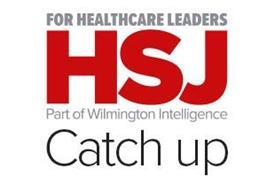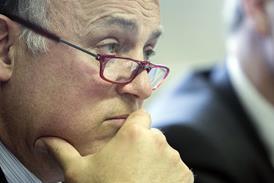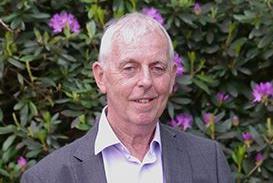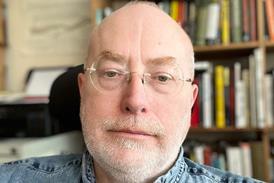Thousands of midwives, nurses and ambulance drivers strike over pay for first time in 32 years, plus the rest of the day’s new and comment

5.10pm While employers may resent the trade unions on days when there’s a strike, an active union means better communication with staff and leads to better decision making by leaders, argues Blair McPherson, former director of community services, author and commentator on the public sector.
4.37pm Heart of England Foundation Trust has launched a consultation on reconfiguring surgical services across its three hospitals.
The West Midlands trust said its plans to create “centres of excellence” at its Heartlands, Good Hope and Solihull hospitals would help it improve quality, meet new clinical standards, cut waiting times and save money.
4.20pm Last month Monitor chief executive David Bennett said: “NHS foundation trusts are striving to overcome the challenges they face while still meeting patients’ expectations for quality care. However, we believe trusts can make further progress by improving their planning.”
It followed a warning in May from the regulator that providers’ two year plans were unrealistically optimistic given the escalating financial pressure
In an attempt to help NHS providers avoid financial distress, Monitor will this week unveil two new resources intended to solve the problem of bad planning by providers.
To help providers and commissioners understand the new resources, Monitor head of sector development Suzie Bailey will be taking part in an online Q&A on hsj.co.uk at 12pm-1pm on 22 October.
Participants will be able to discuss the financial and clinical pitfalls of bad planning and how to avoid it.
For details on how to take part in the discussion, click here.
4.13pm Commenting on the publication of the National Institute of Health and Care Excellence’s draft guidance on medicines optimisation, Stephen Whitehead, chief executive of the Association of the British Pharmaceutical Industry, said: “The ABPI welcomes the publication of NICE’s draft guidance on Medicines Optimisation.
“I am particularly pleased that the draft guidance has recognised that patients should be at the centre of decisions about their care, and that shared decision making should be based on the best available evidence, taking account of the patient’s individual needs, preferences and values.
“The ABPI has always maintained that supporting patients to use medicine more appropriately will not only deliver better patient care, it will also provide cost savings for the NHS by improving NHS productivity – by reducing the need for longer term, more expensive treatment and helping to shift care from hospitals into the community.
“It is essential that the right patient gets the right medicine at the right time.
“The ABPI will now review the draft guidance and then submit a full response to NICE. We look forward to continuing to engage with colleagues at NICE, NHS England and the Department of Health to ensure patients across the UK have access to the medicines they need.”
Seperately, read Sarah Calkin’s interview with Stephen Whitehead here.
4.10pm East Midlands Ambulance Service Trust has released the following statement on today’s NHS strike action:
A national four-hour strike has taken place today as part of the ongoing national NHS 2014/15 pay dispute.
During the four-hours we had 10 per cent of our workforce take full strike action. Of the 350 frontline colleagues who were on duty, 50 per cent worked normally, and 50 per cent took some form of Industrial Action.
During that time, we received 463 emergency and urgent 999 calls.
Of those, 182 were categorised as life-threatening, 195 were serious, and 61 were from people who were suffering a minor illness or injury.
Sue Noyes, East Midlands Ambulance Service chief executive said: “Colleagues have worked incredibly hard this morning, and our contingency plans and negotiations with the trade unions, have helped us mitigate the impact the national strike action had on patient services.
“I thank colleagues for helping us to continue to provide a safe service during this challenging time.”
Until Friday 17 October, trade union colleagues plan further action short of a strike, including not undertaking paid or unpaid overtime.
“We will continue to hold detailed discussions with GMB and Unison representatives throughout this period to make sure we mitigate any impact on patient safety’’ Sue Noyes continued.
“During this time we would ask the public to only use the 999 service in an emergency. Other NHS services are available to support people with minor illness or injury – they include NHS 111, general practitioner, local pharmacy or walk-in/urgent care centre.”
3.55pm Following today’s strike action by the nation’s NHS workers, Rachael Maskell, Unite head of health, said:
“Across England and Northern Ireland today, NHS workers took to the picket lines for the first time in 30 years to demand fair NHS pay.
“Given the feedback from our members, we are confident that this was a very well-supported action with over 100 picket line protests outside NHS hospitals up and down the country. NHS workers were especially thankful for all the messages of support they’ve been receiving from the public.
“We urge Jeremy Hunt to heed his responsibility to the NHS workforce and patients and to start talking with the unions to discuss fair pay for this vital staff who would rather be caring for patients than having to fight their own poverty.
“Health professionals are especially concerned that the health secretary implies that fair wages for them mean job losses, but he does nothing to curb pay excess by corporate chief executives or the horrific £3bn cost of this government’s useless reorganisation of the NHS.
“The health unions are calling for the government not to impose limits on what can be achieved for this essential workforce, but to come to the table prepared to negotiate in a meaningful way.”
3.25pm Former health secretary Andrew Lansley has taken to Twitter to defend his Health and Social Care Act reforms:
NHS reforms have meant lower admin costs, more doctors & nurses, clinical leadership in commissioning; better outcomes & rising productivity
— Andrew Lansley MP (@AndrewDLansley) October 13, 2014
2.52pm Harkness Fellowships allow eminent healthcare leaders to study different healthcare systems around the world, providing greater insight into how the NHS can be better run, writes Dr Emma Stanton, a chief executive of Beacon UK anda member of HSJ’s Future of NHS Leadership inquiry panel.
2.08pm Mental health trusts could be asked to hit a suite of new waiting time targets by 2020 at a cost of more than £130m a year.
The goals were revealed in a Department of Health paper, spelling out its “aspirations” for the mental health service up to 2020.
These outline ministers’ ambition to introduce the first ever access targets for mental health from next April as part of the department’s plan to introduce “parity of esteem” between mental and physical health by 2020.
2.00pm The billions of pounds due to be clawed back from pharma firms under a new NHS pricing deal should not be diverted to help hospitals cut waiting lists, the head of the Association of British Pharmaceutical Industry has urged.
Association chief executive Stephen Whitehead said he would be “disappointed” if the £4bn it expects to be returned to the NHS over the next five years was used to cut elective waiting times.
The money is being paid back under the Pharmaceutical Price Regulation Scheme 2014, an agreement between the Department of Health and the industry.
This will see pharma firms refund any growth in the NHS medicines bill above an agreed level over the next five years.
In the first six months of the year £150m has been returned to the NHS. Mr Whitehead told HSJ he expected this to be closer to £1bn next year.
1.53pm The trade union Unison has released the following statement about this morning’s strike action:
A four-hour strike this morning by NHS staff in England has received overwhelming support.
Hundreds of thousands of workers walked out in protest at the government’s decision to deny the majority of health workers a pay rise.
The bleak conditions did nothing to dampen the determination of striking workers at hundreds of hospitals across the country as workers stood on picket lines from 7am until 11am.
NHS workers are angry at the government’s decision to reject the NHS Pay Review Body’s recommendation for a 1 per cent pay rise for all staff.
On some picket lines, striking workers were brought hot tea, coffee and cakes from doctors and members of the public in a strong show of support. Local government workers and delivery vans at several locations refused to cross picket lines until the strike action stopped at 11am. Local MPs and MEPs stood alongside workers in the north-east.
Unison general secretary Dave Prentis, who stood shoulder to shoulder with striking workers on picket lines in London said: “Today was the first time in 32 years that our members in the NHS have taken strike action over pay. They sent a clear message to the government that they deserve fair pay and the government cannot take advantage of their good will any longer.
“Jeremy Hunt must recognise the strength of feeling shown by our members this morning. We are repeating our calls for the Government to meet with us to negotiate a fair deal for our members in the health service.”
“NHS workers will now take part in action short of strike action between Tuesday 14 October and Friday 17 October, with members taking the breaks they are entitled to.
Pay in the NHS has not kept in line with inflation and staff have not received an above-inflation rise since 2009. This year, 60 per cent of NHS staff will not get a pay rise and only those at the top of their bands will receive a one per cent unconsolidated pay rise.
1.50pm American retailers like Walmart and Walgreens are expanding their brands into primary care and are playing a wider role in public health management in the US.
Jacob West, a 2014-15 Harkness Fellow at the Harvard School of Public Health, explores the trend and whether it could translate to the NHS.
He writes that Obamacare has dominated recent discussion in US health circles. But as retail giants rapidly expand the scale and scope of their healthcare operations, what was a marginal trend may be about to disrupt mainstream healthcare.
1.05pm Collaboration between the NHS and higher education institutions is often hindered by differing perceived demands and values. Kate Springett and colleagues explain the tensions and why we must resolve differences.
1.00pm The Guardian reports that NHS staff are to take further industrial action next month unless ministers agree to give them a 1 per cent pay rise.
Unions whose members just took part in the first walkout by NHS staff over pay since 1982 will undertake further action in November if the health secretary, Jeremy Hunt, does not meet them for talks and offer more money.
“We are already planning, and will definitely be taking, further industrial action if the government doesn’t put more money on the table and doesn’t talk to us,” said Rachael Maskell, head of health at the Unite union. “There will definitely be more industrial action by NHS staff if Jeremy Hunt doesn’t sit down and talk and make more money available. It’s clear that the government are going to have to find money [to settle] this [dispute].
12.50pm Something to bear in mind when talking about pay the NHS workers’ pay dispute; the two year deal impose by the government is non-consolidated. This means it is not added to the pensionable salary of NHS staff but is in effect an additional payment on top of the 2013-14 salary levels.
At the end of the two years in March 2016 NHS staff pay will revert back to the basic salary and pension levels in 2013-14.
The government has offered to consolidate the pay rises in 2016 but only if NHS unions agree to a full year freeze on increment pay in 2015-16.
11.35am Click here to view interactive maps of local NHS waits around England in August, showing the pressures and one year waits, with links to all the detail by organisation and specialty.
The data has been mapped and put together by Rob Findlay, founder of Gooroo and a specialist in waiting time dynamics. Follow him on Twitter at @gooroohealth.
11.33am Saffron Cordery, director of policy and strategy, Foundation Trust Network, commented on today’s CQC report, Cracks in the pathway, describing it as “a useful addition to our understanding of dementia care and the needs of patients and their families”.
Saffron said, “The CQC is able to use its unique position across the health and social care system to shine a light on different aspects of dementia care by specific providers in hospitals and care homes.
“Whilst this is of course a snapshot, based on some care homes and acute providers, it nonetheless provides useful findings for everyone involved in dementia care. The report is also helpful in raising the profile of dementia and promoting parity of esteem between physical and mental health services.
“However, more must be done to understand the experience of patients in their own homes. Also we need to strengthen partnerships with commissioners and across pathways of care provided by social services, community, ambulance and mental health NHS Foundation Trusts and Trusts.
“The report’s key findings show that where acute trusts do find opportunities for improvement it is through introducing holistic assessments, ensuring an appropriate environment for patients, providing specific staff training and mental health support on wards.
“The CQC focus on dementia is welcome and its report should be used alongside the experience of high performing providers of dementia care to drive improvements to services and improve patients’ experience.”
11.30am Health professionals must be open and honest with patients when something goes wrong with their treatment, regulators have said.
Organisations such as the General Medical Council and the Nursing and Midwifery Council have set out their commitment to a “duty of candour” by publishing a joint statement.
The move follows two major inquiries into the Mid Staffordshire scandal by Sir Robert Francis QC, who said the probes had revealed the “appalling” consequences for patients of a “closed ranks” culture within the NHS.
11.26am A major review of dementia care by the Care Quality Commission says the unacceptable gap in the quality of care means it is likely that someone living with dementia will experience poor care as they move between care homes and hospitals.
The CQC inspected care in 129 care homes and 20 hospitals across England, looking at four areas:
- how people’s care needs were assessed;
- how care was planned and delivered;
- how providers worked together;
- how the quality of care was monitored.
In about 29 per cent of care homes and 56 per cent of hospitals we inspected, we found assessments were not comprehensive in identifying all of a person’s care needs.
In about 34 per cent of care homes and 42 per cent of hospitals, we found aspects of variable or poor care regarding how the care met people’s mental health, emotional and social.
The report says the variation in how care is assessed, planned, delivered and monitored by hospitals and care homes puts people living with dementia at risk of experiencing poor care.
It found when people are admitted to hospital via A&E there is too much focus on a person’s physical health needs.
There is also poor sharing of information between health professionals, people living with dementia in care homes and hospitals may not be able to tell staff about their pain and there is a lack of understanding and knowledge of dementia care by staff.
The report adds that supporting both the physical health and mental wellbeing of a person – as well as managing known risks such as falls and urinary tract infections– can help reduce avoidable admissions to hospital and unnecessary long stays in hospital.
Commenting on the findings, Andrea Sutcliffe, Chief Inspector of Adult Social Care, said: “People living with dementia, their families and carers have every right to be treated with respect, dignity and compassion.
“Our review found some great care, delivered by committed, skilled and dedicated staff. But this is not the case everywhere or even within the same service meaning too many people are at risk of poor care. This has got to change.
“A wealth of guidance exists to drive the delivery of excellent care for people living with dementia. We need to make sure that every care home and hospital achieves the high standard of care we see in the best services.
“Our new approach to the regulation and inspection of health and social care means that we can celebrate good care, identify where improvements are needed and take action where necessary so that people living with dementia, their families and carers can always be confident about the care they receive.”
Health secretary Jeremy Hunt said: “There can be no excuse, and no hiding place, for poor care within our NHS – we are focusing on improving the lives of dementia patients and their families as never before. That’s why we’ve trained thousands of NHS staff to recognise the signs of dementia and invested in dementia friendly care homes and hospital wards.
“The CQC play a vital role in improving care through their tough new inspections and it’s vital that they continue to shine a light on any poor practice so that we can drive up standards throughout the country.”
Jeremy Hughes, chief executive at the Alzheimer’s Society, said: ‘With a staggering 90 per cent of the care homes and hospitals inspected found to have aspects of variable or poor care, this report highlights the plight that many people with dementia face.
“The inconsistency of care found here means many people are rightly worried about being admitted to hospital or having to move into care. Carers have told us that their loved ones have gone for hours without food or water in hospital or that they were in pain but no one realised. Staff can also find communicating with people with dementia extremely challenging and wards and a new care home can be disorientating to navigate.
“However, we know there are many care homes and hospitals that are getting it right by training their staff in person centred care and making their homes and wards more dementia friendly. Developing staff and helping them understand the needs of people with dementia is vital if we are to improve the care people receive.”
Professor Gillian Leng, deputy chief executive and director of health and social care at NICE, said “It’s vital that the excellent care highlighted in this report is replicated everywhere across the country. People with dementia deserve the best quality of life in their old age. With NICE’s range of guidance available to all, there is no excuse for standards of care to fall short.”
Some of the other findings of Cracks in the pathway include:
- In about 27 per cent of care homes and 56 per cent of hospitals we found aspects of variable or poor care regarding a lack of understanding and knowledge of dementia care by staff.
- In hospitals, there was limited evidence to show that staff considered the person’s emotional and psychological needs, and how this affected their mental health and wellbeing.
- In about 27 per cent of care homes and 22 per cent of hospitals, we found aspects of variable or poor care in the arrangements for the sharing of information.
- Available guidance is not being used effectively and there is a failure to manage known risks such as falls, urinary tract infections and malnutrition.
Following the report, the CQC has said it is committed to:
- appointing a new national specialist adviser for dementia care;
- training inspectors across all inspecting teams to understand what good dementia care looks like so that their judgements of the performance of providers are consistent and robust; and
- including a separate section in hospital inspection reports that shows how well the hospital cares for people living with dementia.
The findings of the themed dementia review are available http://www.cqc.org.uk/cracksinthepathway
11.19am Following a successful launch last year,HSJ in partnership with Celesio is again celebrating the up and comers who are making a real difference to healthcare.
We will name our latest collection of Rising Stars as the new year starts, and we are looking for your nominations.
Our aim is to celebrate the people whose work and decisions are already improving healthcare, and who are considered likely to be the NHS leaders of the future. A panel of expert judges will decide on the final 25.
You can make nominations now by clicking here. Please be sure to give the individual’s name, job title, organisation and a short description of why you think the person should be considered as an HSJ Rising Star.
The closing date for nominations is Monday 3 November.
11.12am Hospital trusts should ensure adequate children’s community services are in place before closing in-patient units, a senior leader in paediatrics has warned.
This call comes from the Judith Ellis, the new chief executive of the Royal College of Paediatrics and Child Health, who predicts a wave of further consolidations in services as trusts struggle to recruit consultants.
11.09am The Daily Mail covers on its front page a report warning that every dementia patient in the country can expect to suffer poor care at some stage in their lives.
The paper reports that an ‘astonishing’ nine in ten care homes and hospitals fail to provide proper treatment, according to a review by the Care Quality Commission, published today.
The CQC review found widespread neglect, lack of care, poor training and failings in communication.
The regulator’s report concludes: “This unacceptable situation cannot constinue”.
10.55am HSJ correspondent Shaun Lintern tweets:
BBC repeatedly reporting increments are automatic. *sigh* They are not. Unless trusts fail to apply contract properly #NHSstrike #NHSpay
— Shaun Lintern (@ShaunLintern) October 13, 2014
10.52am Nursing Times news editor Steve Ford tweets:
RCM steward Anna White with around 20 colleagues outside Elizabeth Garrett wing, UCLH pic.twitter.com/nCaUcCobur
— Steve Ford (@SteveJFord) October 13, 2014
10.50am The North West Ambulance Service branch of the GMB union tweets this picture:
Army crossing the picket line at fazakerley station #NHSpay #NHSstrike pic.twitter.com/NoI4bmukHy
— NWAS Branch (@gmbambulance) October 13, 2014
10.47am The Daily Mail’s coverage of this morning’s strike action by NHS focuses on the fact that the action was backed ‘by just a fraction’ of staff.
The paper writes that thousands of health workers will cause chaos in the NHS by walking out on hospitals despite only a fraction of them voting to strike over pay.
Fewer than half of those balloted for the controversial strike voted in favour of the action.
The paper adds that one in ten of the union Unison’s ‘eligible’ members voted for strike action.
10.38am The Times reports that senior Tories have admitted that reorganising the NHS was the biggest mistake they have made in government.
David Cameron did not understand the controversial reforms and George Osborne regrets nor preventing what Downing Street officials call a “huge strategic error”, the paper reveals.
One senior cabinet minister told the paper: “We’ve made three mistakes that I regret, the first being restructuring the NHS. The rest are minor.”
One insider described Andrew Lansley’s plans for reform as “unintelligible gobbledygook”.
An investigation by the paper found that at least £5bn is wasted every year on inefficiencies, such as overpaying for supplies, out-of-date drugs, agency workers and empty buildings.
Two fifths of chief executives say that charges to see a GP or stay in hospital will be needed without extra money for the health service.
“Trolley waits” to get into hospital from A&E are running at almost three times the level of 2011 and the cost of bed blockers is at a record high.
In a comment piece in The Times Simon Stevens writes that while the NHS has “dramatically improved” over the past 15 years reforms are needed. He adds that “recent methods of balancing the books are not going to be indefinitely repeatable and service pressures are building”.
British hospitals have been urged to check their infection control procedures after a US health worker who treated an ebola patient contracted the deadly virus in Dallas, The Times reports.
NHS 111 call handlers have now been ordered to ask any patient with a fever about their travel history.
10.31am HSJ correspondent Shaun Lintern tweets:
The starting salary for a nurse in the NHS is £21,478 (outside London). Dealing with things most of us would balk at. #NHSpay #NHSstrike
— Shaun Lintern (@ShaunLintern) October 13, 2014
10.26am The Daily Telegraph reports that as many as 130 soldiers, marines and airmen have been called up to be drivers during the ambulance strike.
The military drivers will replace striking London Ambulance Service and North West Ambulance Service staff.
Also in The Telegraph (newspaper only), health professionals must be open and honest with patients when something goes wrong with their treatment, regulators said yesterday.
Organisations such as the General Medical Council and the Nursing and Midwifery Council have set out their commitment to the “duty of candour” by publishing a joint statement.
10.25am HSJ’s sister publication Nursing Times reports thatthe strike ballots come in response to the government in England’s decision to reject the NHS Pay Review Body’s recommendation to increase the pay of all staff in Agenda for Change by 1 per cent.
Unison head of health Christina McAnea said: “This is the first time in 32 years that NHS workers take industrial action over pay. And for many, it will be the first time. Up and down the country, hundreds of thousands of workers are out fighting for fair pay and for the NHS.
“The fact that so many unions representing a range of NHS workers are taking action today or preparing to join future actions should send a clear message to the government,” she said.
“The NHS relies on the good will of its workers but we know that a demotivated workforce is bad for patients. The government needs to start negotiating with us and reconsider their pay policy,” she added.
10.20am The think tank the Adam Smith Institute has released the following statement on strikes this morning by NHS staff: “The unions taking part in today’s strike are deluded about the state of the NHS. The NHS operates on a budget; if more funds are distributed to pay staffers’ salaries, spending in other areas must be cut.
“The only employees to be denied a 1 per cent pay rise are those who have automatic progression-in-the-job rises as part of their contracts, yet the unions are still demanding that funds be diverted from patient care to paychecks.
“There is strong evidence that the NHS could fall into a budget crisis as early as 2015 - even before the next general election - which could result in longer patient waiting lists, cuts to core staff and a depletion in the quality of public health care.
“But instead of addressing this looming crisis that will affect all staffers and patients throughout the UK, some unions have joined together to fight for a pay increase for workers who already benefit from guaranteed pay raises.
“The consequences of their demands will be seen in the long-term as well as the short-term, as their strike threatens the quality of service patients will be provided for hours on end. What healthcare in Britain needs is a serious conversation about reforms that would make the NHS financially viable for the next ten years, let alone for future generations.
10.16am Looking to this morning’s papers,The Guardian leads on the four-hour NHS strike today. Non-urgent caesarean sections and other elective operations will be delayed as a result of the strike, the paper reports.
Also in The Guardian, nine out of ten care homes or hospitals treating people with dementia have aspects of care that are poor, according to the Care Quality Commission.
The Alzheimer’s Society described the CQC’s findings as “staggering”.
10.10am UNISON members working in the NHS in England will stage a four-hour stoppage between 7am and 11am on Monday 13 October for the first in 32 years.
This will be followed by four days of action short of strike action between Tuesday 14 and Friday 17 October when members will ensure they take their breaks.
68 per cent of those who took part in the ballot voted yes to industrial action and 88 per cent to action short of strike action.
UNISON members including nurses, paramedics, therapists, cooks, cleaners, healthcare assistants and admin staff will be joining picket lines outside hospitals from 7am.
Dave Prentis, UNISON General Secretary said: “Our NHS members don’t take action often or lightly. For many, it will be the first time they walk out as the last action over pay was 32 years ago.
“But what NHS workers also don’t do is walkout on patients. Safety is paramount and we have been working with employers to ensure urgent patient care is not compromised. Patient safety is paramount and life and limb cover will be provided.
“I reiterate my offer to Jeremy Hunt to reconsider his pay policy and negotiate with trade unions to avoid more industrial action as we get closer to the Winter pressures.”
Picket lines will be placed on workplaces from 7am.
10.00am Good morning and welcome to HSJ Live. Thousands of NHS staff including nurses and midwives are taking part in industrial action today, the first strike over pay in 32 years.
NHS members from Unison, Unite, the GMB and the Royal College of Midwives stopped working between 7am and 11am today.
The strike follows the government’s refusal to give all NHS staff a 1 per cent pay rise. Instead it has imposed a non-consolidated 2 year pay deal which will end in 2016.
Health secretary Jeremy Hunt has offered unions the chance to negotiate but only if they are willing to accept a freeze on increments in 2015-16.
Christina McAnea, head of health at Unison said: “The fact that so many unions representing a range of NHS workers are taking action today or preparing to join future actions should send a clear message to the government.”
The stoppages on Monday will be followed by four days of action short of strike action between Tuesday 14 and Friday 17 October when union members will stop working through their breaks.























No comments yet